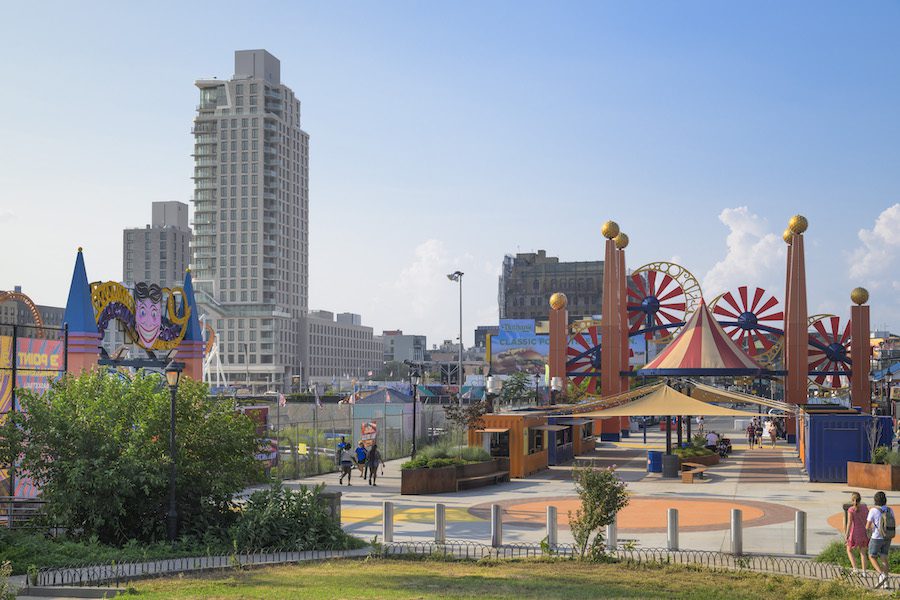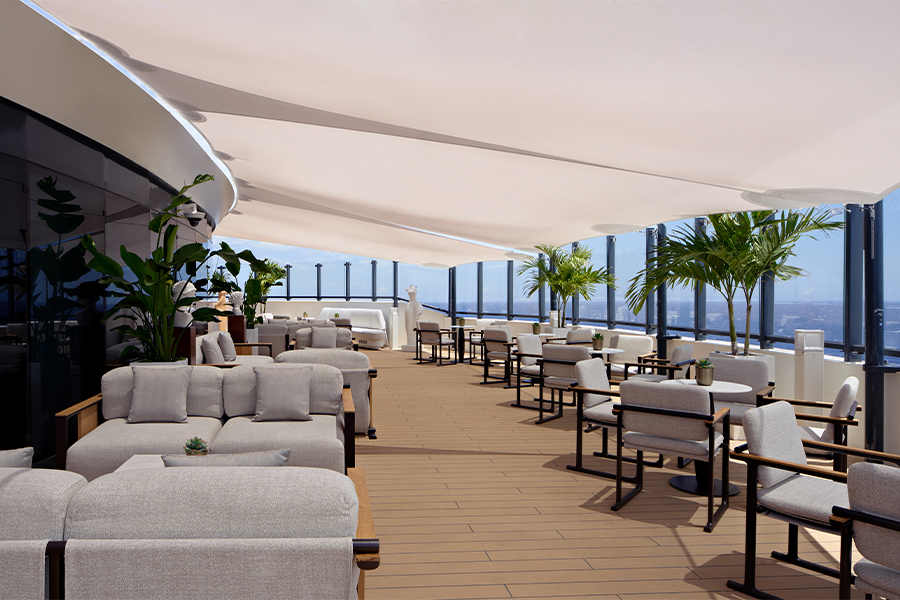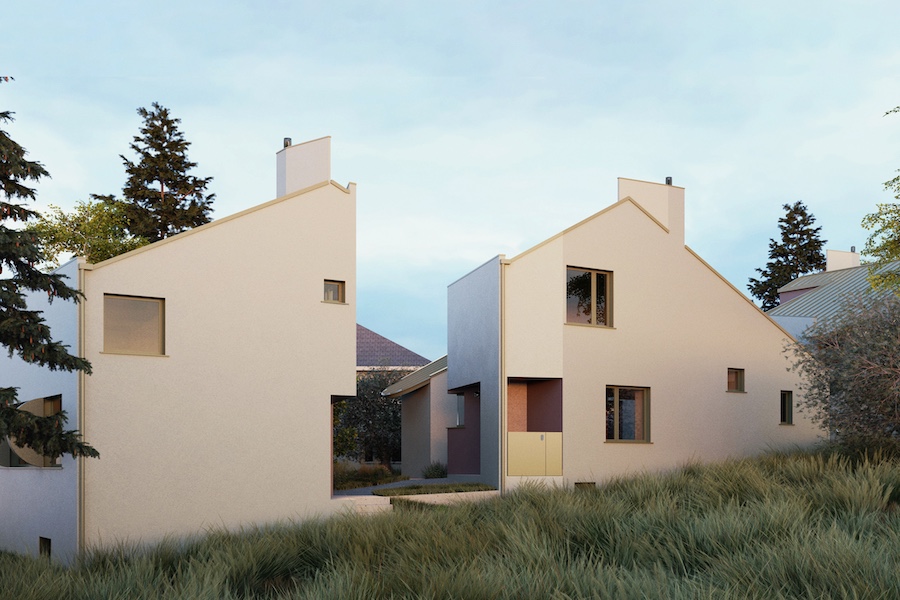Hurricane Milton evacuees seek shelter in hotels across Florida, a new geothermal development opens in New York’s Coney Island, and Las Vegas says goodbye to the Tropicana hotel after 70 years. All that and more in this week’s Five on Friday.
Hurricane Milton evacuees seek refuge in hotels

A satellite image of a hurricane; photo courtesy of Adobe Stock
The devastating impact of Hurricane Milton reached Florida’s Gulf Coast on Wednesday night, only two weeks after Hurricane Helene made landfall as a Category 4 in the same region. As thousands of residents fled the state’s west coast to escape life-threatening winds, rain, and storm surges, many sought refuge in hotels across South Florida. CBS News spoke to La Quinta Inn and Suites in the city of Doral, whose 143 rooms were sold out as of Tuesday ahead of the storm’s arrival. Palm Beach County also saw a surge of evacuees, with 88 percent of its hotels occupied by Wednesday, according to The Palm Beach Post. NBC’s Today compiled a vetted list of ways to help in the aftermath, which can be viewed here. For more resources, visit the National Voluntary Organizations Active in Disaster, which has ongoing donation and volunteer efforts for Hurricane Helene and Milton.
New York opens its largest geothermal development

Designed by Studio V, 1515 Surf features expansive outdoor terraces with sweeping views of Coney Island and the Atlantic Ocean; photo courtesy of LCOR
Just steps from Coney Island’s iconic boardwalk, 1515 Surf has officially opened as New York City’s largest geothermal development, reports Fast Company. Developed by LCOR and designed by Studio V, the 16-story, 463-unit residential tower features an innovative geothermal system that harnesses the Earth’s constant 54-degree Fahrenheit temperature to heat and cool the building. An acre-wide network of heat pumps circulates water through the system, transferring excess heat into the ground during hotter months and pulling warmth from the Earth in cooler seasons, even heating an outdoor pool. This replaces a function typically achieved with fossil fuels, and is expected to reduce the building’s carbon emissions by 60 percent and lower utility costs by up to 30 percent.
Las Vegas bids a dramatic farewell to Tropicana

The Tropicana hotel was demolished to make way for a new Athletics stadium; photo courtesy of Adobe Stock
This week, the Tropicana casino hotel was brought down to make way for a new Major League Baseball stadium for the Athletics, reports USA Today. The demolition, in true Las Vegas fashion, used not only 2,000 pounds of explosives but also 555 drones and a fireworks display set to music from Las Vegas icons like Elvis Presley and Frank Sinatra. The Tropicana, which enjoyed a 70-year run on the Strip, was known for its extensive entertainment offerings, including Vegas’ longest-running show, Folies Bergere, which debuted in 1959, and performances by jazz greats like Louis Armstrong. Nine acres of the newly available land will be slotted for a $1.5 billion, 33,000-seat indoor stadium, while the remaining space will go towards a new casino resort.
European hotels boost wastewater recycling

The Les Mimosas campsite and water park is tapping into water-saving initiatives; photo courtesy of Les Mimosas
In European regions where water is scarce, hotels are exploring ways to conserve and recycle water. Euronews highlighted several initiatives, including efforts at the Les Mimosas campsite and water park in southern France, where water-saving measures reduced consumption per tourist by 15 percent. Pascal Mangin, the property’s manager, notes that these efforts—partially funded by the Occitania region—include replacing traditional sand filters in the swimming pool with synthetic materials that use three times less water for backwashing. A future project will recycle wastewater from the bungalows using ultraviolet filters, making it “almost drinkable,” according to Mangin. Meanwhile, across the border in Spain, Can Buch hotel uses filtered rainwater for half of its water needs, collecting an average of 1.5 million liters annually from its roofs. Additionally, wastewater is treated through a local plant-based filtration system before being reused in the farm’s garden, which supplies the hotel’s restaurant, creating a closed-loop system of water use.
4 can’t-miss CEU-accredited sessions at BDNY

Drift Santa Barbara, part of Design Hotels, where brand director Sarah Doyle will talk about mindful design during BDNY; photo by Erin Feinblatt
This year, the BDNY Mainstage, designed by Brooklyn, New York-based firm Watts & Dray, will host eight CEU-accredited sessions featuring insights on topics including healthy design; hospitality’s influence on other industries; mindful design, which looks at how neuroaesthetics are integrated in hospitality; and NEWH’s BrandED, a deep dive into the evolution of the W Hotels brand. Register for BDNY today!



